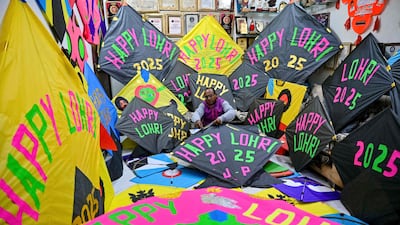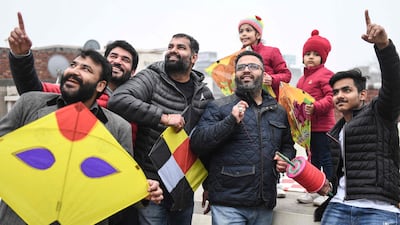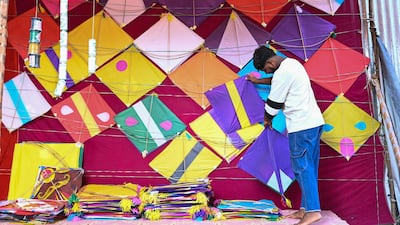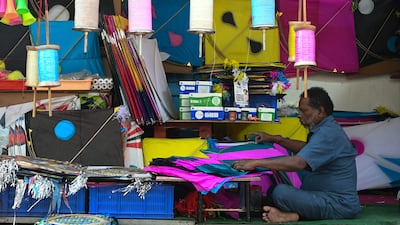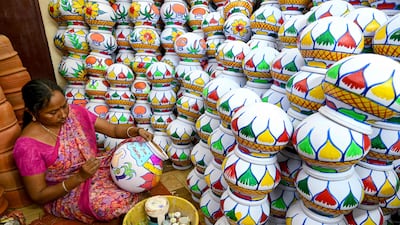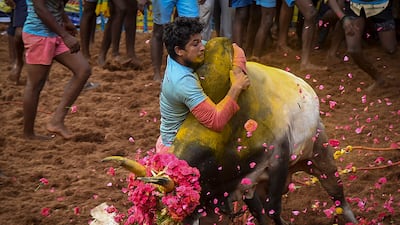The first major Indian holiday of the year is a Hindu festival dedicated to the sun god, Surya. Popularly called Makar Sankranti, it is celebrated over several days and marks the end of winter and the start of spring.
Known by various names across the country, the festival is celebrated as Pongal in the South Indian state of Tamil Nadu and among the Tamil diaspora around the world, including in Sri Lanka. In Assam in the north-east of India, it's celebrated as Magh Bihu, while in other states, it's simply known as Sankranti. Sikhs also celebrate the festival as Maghi.
India's neighbouring countries also mark the festival – it is known as Poush Sankranti in Bangladesh and Maghe Sankranti in Nepal.
Meanwhile, similar celebrations also take place around the same time for Lohri. Observed mostly in Punjab and among the Punjabi diaspora around the world, Lohri marks the end of the winter and the start of longer days.
On which dates do Lohri, Makar Sankranti and Pongal fall?
The dates for Makar Sankranti and Pongal are set by the solar cycle and usually begin when the Sun enters Capricorn. According to online Hindu calendar drikpanchang.com, this year Makar Sankranti and Pongal fall on January 14 on the Gregorian calendar. Lohri will be celebrated a day earlier, on January 13.
How is Lohri celebrated?
As this festival marks the last days of the cold winter, Lohri celebrations traditionally involve the lighting of bonfires, where people gather around and sing songs and dance. Celebrants usually wear brightly coloured clothes and perform bhangra, while others toss sesame, jaggery and peanuts into the fire for good luck.
Folk songs are also sung, one of the most popular ones being the legend of Dulla Bhatti, a man known for his courage when he rescued girls from being sold to slavery during Mughal emperor Akbar's reign in the 1500s.
How is Makar Sankranti celebrated?
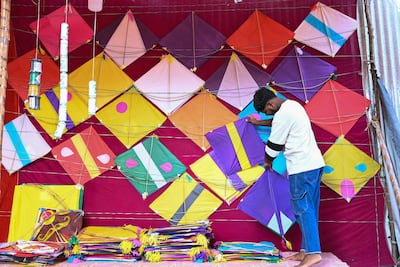
Depending on which part of India you live in, Makar Sankranti celebrations can last between two and four days, with each state or region marking the festivities in different ways. In some Indian states, such as Tamil Nadu, Pongal is a major holiday and celebrated for up to four days.
In Andhra Pradesh and Telangana, also in the south of India, women decorate the entrance of their homes with geometric patterns using rice flour. In Gujarat in the west, thousands of colourful kites can be seen dotting the skies as revellers head to building rooftops to indulge in friendly kite-flying competitions.
Many Hindu devotees also travel to holy rivers such as the Ganga and Yamuna to take a dip and atone for their sins. In many parts of India, sweets are made from sesame and jaggery, and consumed as part of celebrations.
How is Pongal celebrated?
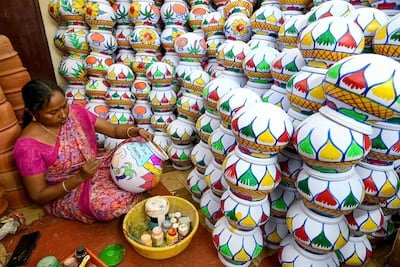
Pongal gets its name from the dish popularly made to mark the festival. The name means to “boil over” or “overflow”, and the dish is made of rice, milk and jaggery traditionally cooked in a clay pot.
The dish is first offered to the deity Surya, then to cattle, who help with agriculture, and then shared among family members or among the community, where large-scale celebrations are held.
On this day, cows are bathed, garlanded with flowers and their horns decorated.
Pongal is also when the ancient, albeit controversial, Jallikattu, or bull fighting, is held. During the event, a bull is released into a crowd of people and male participants attempt to grab the hump on its back to try to bring the bull to a stop.
Animal rights activists have called for the sport to be banned, claiming bulls are often grievously hurt and even killed as a result. In May 2023, India's Supreme Court allowed the sport to continue following a brief ban.
Celebrations in Dubai
Kite Mela
This family-friendly event at Amity School in Al Qusais will feature cultural and dance performances, live performances, food stalls and, of course, lots of kites. There will also be a kids activities and fun zone. Doors open 11am. Tickets priced at Dh20 are available online. Children under five enter free.
Lohri Set Menu

Bombay Brasserie at Taj Dubai is serving a Lohri Set Menu on the evening of January 13, blending authentic Punjabi flavours with refined dining.
From classics such as sarson ka saag with makki roti, dahi bhalla and dal makhani to dhaniya murgh, each dish has been prepared to reflect the spirit of Lohri. Diners will also be entertained on the day by a live sitar player to add to the festivities.
The Lohri Set Menu is priced Dh275 per person.
Thali lunch and set dinner menu
Shamiana at Taj Jumeirah Lakes Towers is offering curated lunch and dinner options for the festival from January 13 to 15. The offer includes a Lohri Lunch Thali and a Lohri Dinner Set Menu featuring Punjabi classics prepared with authentic flavours.
Lunch is available from 12.30pm to 3.30pm and is priced Dh145 per person while dinner will be served from 7pm until 10.30pm, priced at Dh175 per person.
Punjabi thali
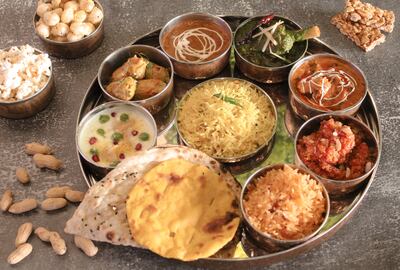
Punjabi restaurant Dhaba Lane, which has multiple branches in Dubai, is offering an all-you-can-eat Punjabi thali to mark Lohri. Available from January 9 to 14, the package includes traditional Lohri treats such as gajak, a sweet treat made of sesame seeds, and rewadi, a jaggery and sesame mixture. The thali is available for both lunch and dinner and is priced at Dh65. There will also be live performances at the Karama and Al Nahda branches in Dubai on January 13.

